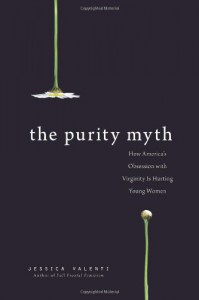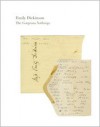Currently reading
Saints in Art
The Gorgeous Nothings: Emily Dickinson's Envelope Poems
Selected Poems
Emily Dickinson
Lies My Teacher Told Me : Everything Your American History Textbook Got Wrong
Gone with the Wind
The Purity Myth: How America's Obsession with Virginity is Hurting Young Women
 “No man’s getting into my bed unless he puts a ring on my finger.”
“No man’s getting into my bed unless he puts a ring on my finger.” A neighbor of mine was in the habit of saying this. It made me uncomfortable because, first of all, nobody had asked. I mean, seriously, she would throw this into a pause in the conversation the way some people might make idle observations on the weather.
Second, when she put it that way, it didn’t sound like, “I don’t know about the rest of you gals, but I have standards,” which I’m sure is how she meant it. It sounded uncomfortably economic: pay the fee and you can take home the prize. Which was exactly the opposite of the kind of woman she was trying to prove herself to be.
Third, and most disconcerting of all to me, this statement seemed to rule out any desire she might feel. She didn’t seem to be saying, “I can’t wait to get married and share the kind of ecstatic closeness that I’d only be able to experience in the bonds of holy matrimony. I mean, seriously – talk about wedded bliss.” Instead, she seemed to be saying, “If a man were willing to marry me, I’d be willing to let him do that to me.”
Ew.
This neighbor moved from my apartment complex years ago. We fell out of touch, but I found myself thinking about her as I read The Purity Myth: How America’s Obsession with Virginity Is Hurting Young Women.
The Purity Myth, as you guessed from the title, is about the worship of a physical state. The subject matter is depressing as hell. Initially, I found myself irritated by Jessica Valenti’s frequent interjections of snarky humor; a few chapters in, I found myself clinging to them for dear life. Valenti doesn’t spend the whole book talking about “purity balls” and abstinence education; she explores the logical consequences of equating female virginity with virtue. And those consequences are pretty dire.
I think it’s odd that she specifies “young” women in her subtitle. The idea that female morality should be defined entirely by what a woman does in the bedroom and when she does it damages all women. My neighbor was in her late forties when I knew her, and was not physically beautiful. She was one of the wittiest, warmest people I’ve ever known. I found myself spending lots of time with her, and I’m antisocial. She was extremely in demand as a friend. She could make people feel pampered and cozy even if all she had to offer was water and a half-empty bag of potato chips. She was a terrific conversationalist. She was educated without being pedantic, compassionate without condescension.
And so it made me sad that when it came to finding a spouse, she seemed to think that all she had to offer was that one-time shot at her total lack of experience between the sheets. “Who wants virginity? I got virginity right here!” She had a lot more than that, but she didn’t seem to think it mattered.
Jessica Valenti makes an excellent point about virginity in her book, one I’ve never seen spelled out in so many words: we don’t really have a working definition of virginity. Not one that seems to (ahem) cover all the bases. Is a lesbian who’s had an active love life with other women, and only other women, a virgin? What if she marries a woman and decides to become a biological mother via donor? Has she experienced a virgin birth? Shouldn’t that have hit the papers by now? Wouldn’t the Bible need a new chapter?
(Valenti doesn’t bring up the virgin birth thing, btw. That’s all me. Thank you. I’ll be here all night.)
Valenti doesn’t spend the whole book on the subject of virginity per se. Rather, as I said, she draws connections. You can read this book to find an excellent analysis of how sexism is intertwined with very specific ideas about sex. You can also read it for the “Oh my cow, they did WHAT?” anecdotes about “integrity balls” (the mother-son equivalent of “purity balls”), daddy-daughter dating (it’s as creepy as it sounds!), and abstinence-only education (one teacher’s lesson involved “tying up a male volunteer from the audience and dangling a cinder block precariously over his genital area to demonstrate the ineffectiveness of condoms against HIV/AIDS”).
Whatever grabs you about the book, you’ll finish it with a lot to think about. I plan to hand this to my teenage son next. We’ll have quite the conversation when he’s done.








